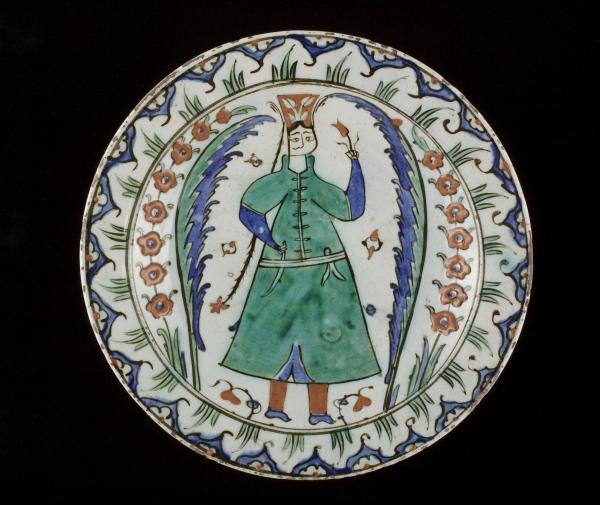Growing up, our parents’ appeals to mind our manners at meals may have felt a bit arbitrary but much of this kind of etiquette has been around a lot longer and shared further afield than we might expect. In conducting research for Dining with the Sultan at Charles White Elementary School, we found that some of the advice we heard growing up would have fit right in at a meal in the medieval Islamic world.
For example, the Damascene scholar Badr al-Din al-Ghazzi advised strictly against double dipping. Since diners frequently shared from the same bowl or platter, one had to be particularly courteous and conscientious to those around them. Cleanliness was also important and washing one’s hands before a meal was an absolute necessity.
Long before Emily Post, scholars in the medieval Islamic world compiled dining etiquette into treatises, sometimes with highly entertaining names for “bad diners.” In The Book of Misers (Kitab al-Bukhala), the ninth-century Iraqi author al-Jahiz called someone who sprayed their fellow diners by shaking their hands free of water after washing them the “scatterer” (naffad). A “shifter” (muhawwil) was someone who secretly snuck his date pits into his neighbor’s pile, making it look like he ate less. And no one wanted to be called “the disgusting one” (al-mughaththi), used by al-Ghazzi to describe someone who eats with so little control that he has grease all over his face.
To bring some of this helpful advice to 21st-century Angelenos, we put together a short presentation that runs in the exhibition space. You can learn the dos and don’ts of “dining with a sultan” at the free exhibition at Charles White Elementary School on Saturdays from 1–4 pm, through August 10. You’re also invited to join the next Set the Table! Monthly Craft Workshops at the exhibition on Saturday, May 18, Thursday, June 6, and Saturday, June 29.



